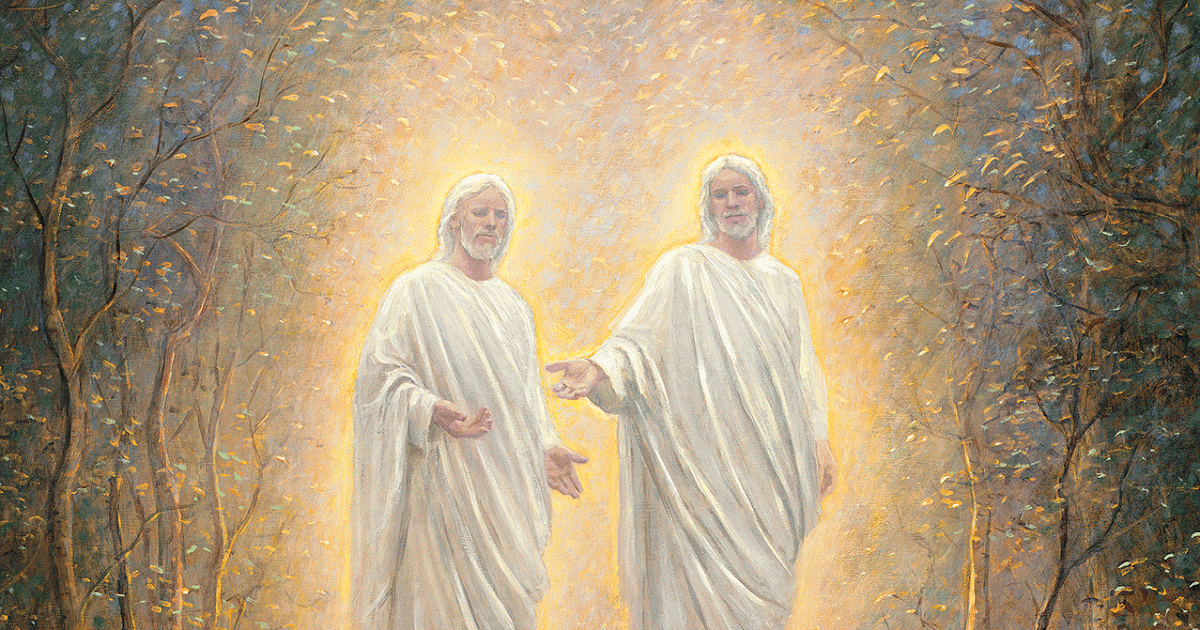The Church of Jesus Christ of Latter-day Saints, often referred to as the LDS Church or Mormon Church, is a global religious organization that places Jesus Christ at the center of its beliefs and practices. With over 17 million adherents worldwide, the Church plays a significant role in various aspects of society, including business, education, politics, and charity work.

In this comprehensive guide, we will explore the core beliefs and teachings of The Church of Jesus Christ of Latter-day Saints, shedding light on what makes this faith unique and how its members strive to live according to their principles. From the nature of God and the purpose of life to the role of modern-day prophets and the Church’s stance on various social issues, we will cover a wide range of topics to provide a thorough understanding of this religious tradition.
Core Beliefs of The Church of Jesus Christ of Latter-day Saints
At the heart of the LDS Church’s teachings are the beliefs in Jesus Christ as the Savior of the world, the importance of His Atonement, and the restoration of His original Church. These foundational principles guide the faith and practices of its members.
1. Jesus Christ is the Savior of the World and the Son of God
Latter-day Saints firmly believe that Jesus Christ is the Savior of the world and the Son of Heavenly Father. They view God as a loving Heavenly Father who knows and cares for each individual. While they recognize that Heavenly Father, Jesus Christ, and the Holy Ghost are distinct beings, they believe that they are united in will, purpose, and love.
Church members worship Jesus Christ as their Savior and Redeemer, seeking to follow His example in their daily lives. They accept His grace and mercy, endeavor to be baptized, pray in His name, partake of the sacrament, do good to others, and bear witness of Him through their words and actions.
2. The Atonement of Jesus Christ Brings Salvation and Eternal Life
According to LDS doctrine, the Atonement of Jesus Christ is central to God’s plan for humanity’s salvation. The Atonement enables individuals to be forgiven of their sins and have the opportunity to live with God and their families eternally. While acknowledging that humans make mistakes and sin, Latter-day Saints believe that through repentance, baptism, and acceptance of Christ’s grace, they can be cleansed from sin and ultimately return to live with God.
3. The Restoration of Christ’s Original Church
Latter-day Saints believe that the original Church established by Jesus Christ during His mortal ministry gradually lost its authority and true teachings after the death of His apostles. As a result, they assert that a restoration was necessary to bring back the fullness of Christ’s gospel. They believe that this restoration began with the founding prophet of The Church of Jesus Christ of Latter-day Saints, Joseph Smith.
Members of the LDS Church teach that the Lord has restored His Church in the latter days with living apostles and prophets, who receive revelation from God. They emphasize the importance of continuing revelation and the role of modern-day prophets in guiding the Church and its members.
Frequently Asked Questions
To provide further insight into the beliefs and practices of The Church of Jesus Christ of Latter-day Saints, let’s address some common questions frequently asked about the faith.
Are Latter-day Saints Christian?
Yes, the Church of Jesus Christ of Latter-day Saints is a Christian church. Its members believe in Jesus Christ as the Son of God and the Savior of the world. They strive to follow His teachings and consider Him central to their faith and worship.
What do Latter-day Saints believe about God?
Latter-day Saints believe in a loving Heavenly Father who knows and cares for each individual. They affirm that God is kind, just, all-wise, and all-powerful. While acknowledging the separate identities of Heavenly Father, Jesus Christ, and the Holy Ghost, Latter-day Saints believe that they are one in will, purpose, and love.
Do Latter-day Saints believe in the Trinity?
Latter-day Saints refer to the Father, Son, and Holy Ghost as the Godhead. While they believe in the unity of the Godhead, they do not subscribe to the traditional understanding of the Trinity as one being in three persons. Instead, they view the Father, Son, and Holy Ghost as distinct beings with unified goals and purposes.
What is the purpose of life according to Latter-day Saints?
For Latter-day Saints, life on earth is seen as a temporary state in which individuals are tested and given the opportunity to learn and progress. They believe that God has a plan for His children to return to live with Him and become “joint-heirs with Christ.” Mortal existence is viewed as a crucial part of this plan, where individuals can make choices, exercise agency, and develop their character.
Do Latter-day Saints believe in the Bible?

Yes, the Bible holds a central place in the religious beliefs of Latter-day Saints. They revere the Bible as the word of God and engage in regular study and discussion of its teachings. While also embracing additional books of scripture, such as the Book of Mormon, Latter-day Saints consider the Bible as divine wisdom and an essential source of guidance for their lives.
What is the Book of Mormon?
The Book of Mormon is another testament of Jesus Christ and an additional volume of scripture, alongside the Bible, that is considered sacred by Latter-day Saints. It contains the writings of ancient prophets who lived on the American continent and provides an account of God’s dealings with these people. Latter-day Saints view the Book of Mormon as a complement to the Bible and a powerful witness of Jesus Christ.
What is a Latter-day Saint temple?
Latter-day Saint temples are considered sacred buildings where Church members make covenants with God and participate in sacred ordinances. In temples, members learn about the central role of Jesus Christ in God’s plan and strengthen their relationship with Him. These temples are also used for marriage ceremonies, where couples are promised eternal life together with their families.
Do Latter-day Saints believe in modern-day prophets?
Yes, Latter-day Saints believe in the existence of modern-day prophets who receive revelation from God. The Church is led by a prophet and his counselors, known as the First Presidency, as well as a Quorum of Twelve Apostles who are considered special witnesses of Jesus Christ. These leaders guide the Church globally and receive inspiration to help Church members navigate their lives and spiritual journeys.
Do Latter-day Saints believe that the apostles receive revelations from God?
Latter-day Saints believe that the apostles and prophets of The Church of Jesus Christ of Latter-day Saints receive revelations from God to guide and direct the Church. They view revelation as ongoing and consider it a fundamental part of their faith. Individuals can also receive personal revelation through prayer and spiritual seeking.
Do Latter-day Saint women lead in the Church?
Yes, women play integral leadership roles in The Church of Jesus Christ of Latter-day Saints. While men hold the priesthood, women serve in various positions of leadership, including as leaders, counselors, missionaries, and teachers. Women are encouraged to use their unique talents and abilities to contribute to the Church and society at large.
Do Latter-day Saints believe they can become “gods”?
Latter-day Saints believe in the potential for individuals to become like God. They understand this belief as an extension of the biblical teaching that humans are children of God and can become “joint-heirs with Christ.” However, this belief is often misconstrued, and it does not imply that individuals will replace or surpass the divine nature of God. Instead, it emphasizes the opportunity for personal growth and eternal progression.
Do some Latter-day Saints wear temple garments?
Yes, some faithful adult members of The Church of Jesus Christ of Latter-day Saints wear temple garments as part of their religious practice. These garments are considered sacred and are worn as a personal reminder of covenants made with God. Similar to religious vestments in other faith traditions, temple garments are not to be ridiculed or treated disrespectfully.
Do Latter-day Saints practice polygamy?
No, The Church of Jesus Christ of Latter-day Saints officially discontinued the practice of polygamy in 1890. While there were historical periods when some members of the Church practiced polygamy, it is strictly prohibited in the present-day Church. The general standard of marriage in the Church is monogamy, and the teachings emphasize the importance of marital fidelity and commitment.
What is the position of the Church regarding race relations?
The Church of Jesus Christ of Latter-day Saints unequivocally condemns racism. While there were historical restrictions on the priesthood for individuals of African descent, the Church reversed this policy in 1978. Today, the Church affirms that all individuals, regardless of race, are equal in the sight of God and should be treated with love and respect. The Church actively promotes racial harmony and encourages its members to foster understanding and inclusion.
Why do Latter-day Saints “baptize for the dead”?
Latter-day Saints believe in the opportunity for individuals who have passed away without the opportunity for baptism to receive it through proxy baptisms performed on their behalf. This practice is seen as an act of love and service, allowing individuals in the afterlife to choose whether or not to accept the ordinance. Proxy baptism does not change the religion or heritage of the deceased individuals or their descendants.
Why does the Church send out missionaries?
The missionary effort of The Church of Jesus Christ of Latter-day Saints is based on the New Testament pattern of spreading the gospel and baptizing believers. Missionaries serve voluntarily and fund their own missions. They are assigned to countries where the Church is allowed to operate and serve in various capacities, including teaching, humanitarian work, and sharing the message of Jesus Christ.
Why don’t Latter-day Saints smoke or drink alcohol?
The health code followed by Latter-day Saints is based on principles of healthy living and avoiding substances that are harmful to the body. As part of their religious beliefs, Church members abstain from alcohol, tobacco, tea, coffee, and illegal drugs. Research has shown that adhering to this health code contributes to longer life and lower mortality rates from certain diseases.
Conclusion
The beliefs and teachings of The Church of Jesus Christ of Latter-day Saints encompass a rich and diverse theological landscape. From their beliefs in Jesus Christ as the Savior of the world to their emphasis on personal revelation and the importance of family, Latter-day Saints strive to live according to their faith and values. Understanding their core beliefs and practices can foster greater appreciation and respect for this global religious tradition.




No comments! Be the first commenter?